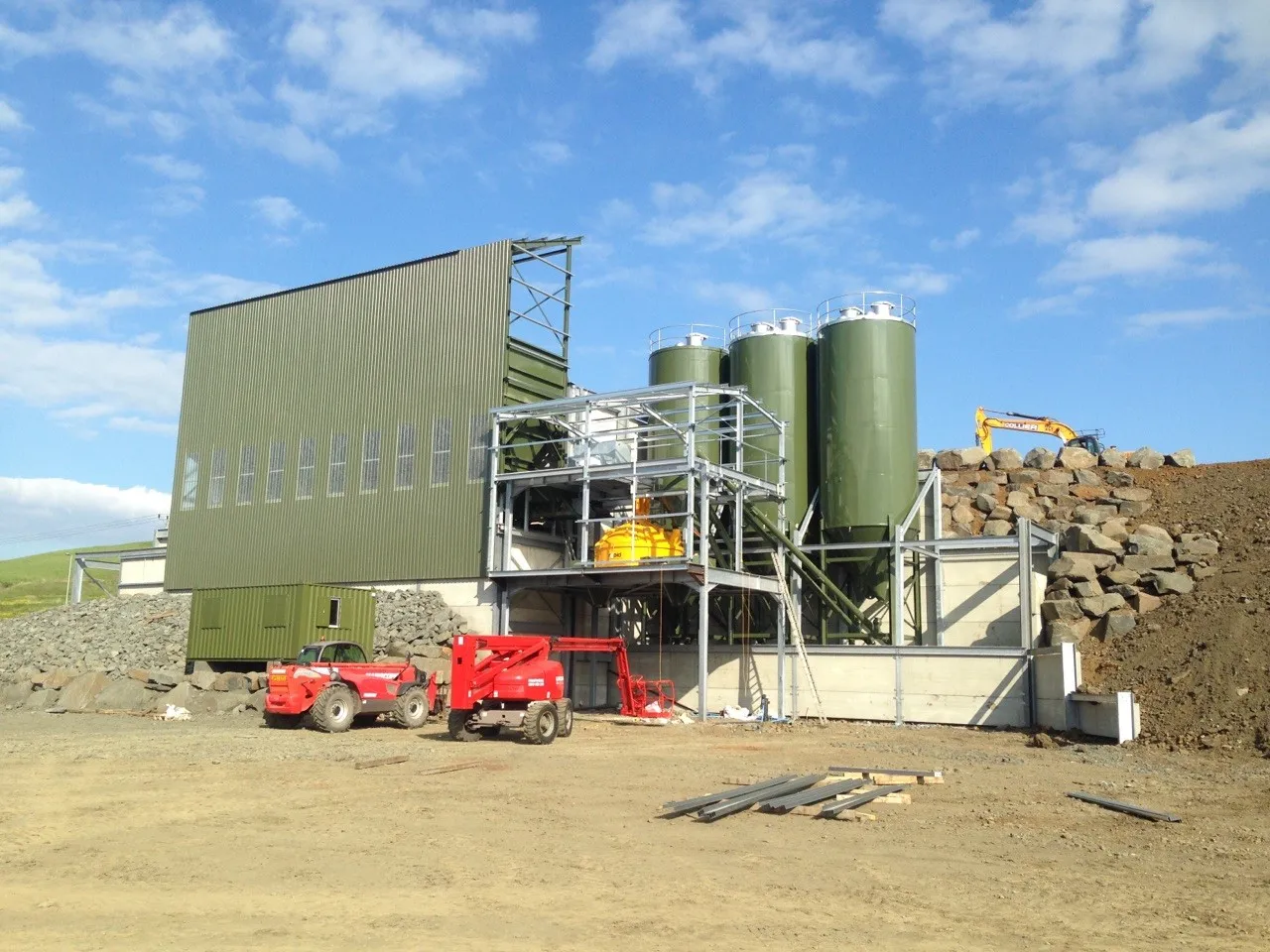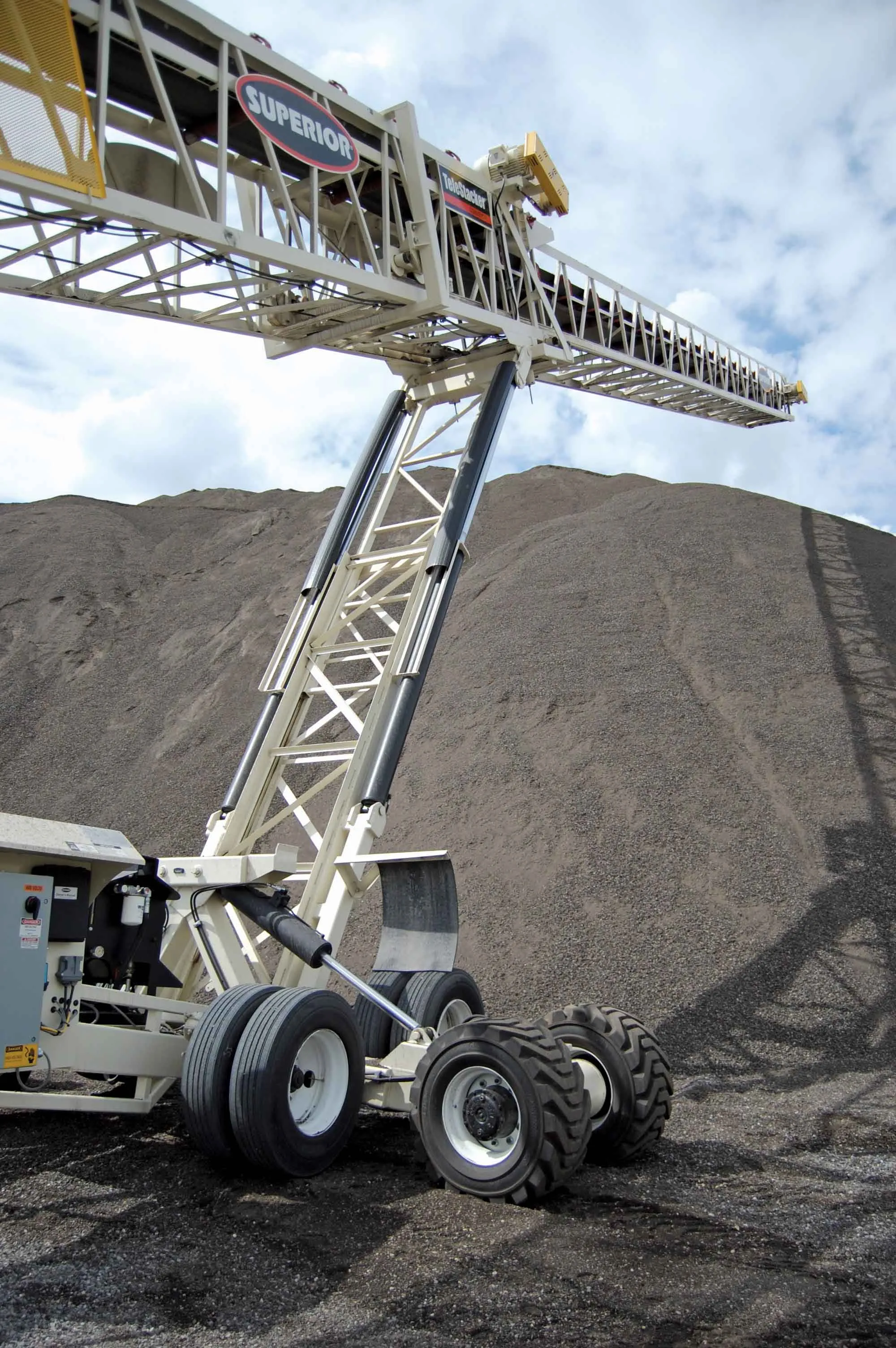
The plant was installed at Collier’s Goathill Quarry in Fife.
Collier Group’s activities have included processing of inert rubble, muck and soil from building sites, transportation of ash from power stations, production of type 1 sub-base, rock armour, single size aggregates including high PSV and manufactured concrete sand from the washing plant.
The Group’s batching plant from Rapid is built on a slope and includes five 4m-wide 80tonne capacity aggregate bins and three 160tonne capacity silos.
Two of the silos are divided in two and are accessed from the upper ground level. Filler hoses fill the four 2500litre admixture tanks in the mixer building.
The aggregates fall onto a 23m-long horizontal weigh-belt, which feeds directly into the Rapid planetary mixer to produce outputs of 80m³ of concrete per hour. This is the only conveyor belt used in the entire plant as the bins can be filled directly by loading shovel, dump truck or tipper.
The batch control cabin with computer controls made by Pneutrol, truck mixer loading point and wet hopper are all located on the lower yard level of the plant. This is where the blocks and precast are made, inside or outside depending on weather.
Rapid, based in Portadown, Northern Ireland, said it uses 3D modelling software to develop a plant to suit a customer’s site, budget and application. Apart from concrete, it can produce plants for soil or aggregate recycling, bulk material handling, glass production, mine backfill and foamed bitumen emulsion and bentonite landfill sealing.
Meanwhile, Rapid International USA recently supplied a Rapidmix 400CW mobile continuous concrete mixing plant to Andale Construction, based in Wichita, Kansas. The 400CW worked on the North Gate Improvement project at the Port of Virginia’s Norfolk International Terminals in Hampton, Virginia. Andale’s Rapidmix is now moving on to a road project for the North Carolina Department of Transportation.








